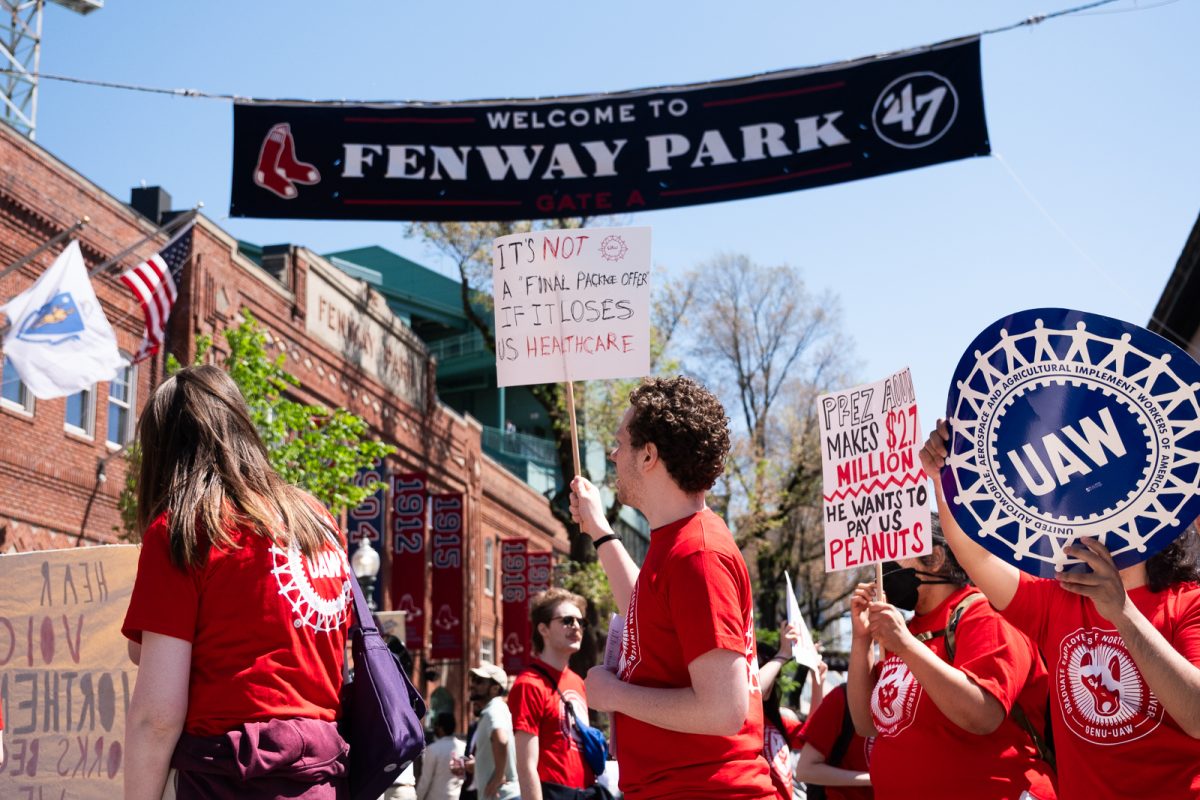Arthur Frommer was a young American drafted to fight in the Korean War, but ended up in Europe by what he called “an accident of fate.” While he was there, he noticed something.
“The day that a pattern emerged was the day when I was nursing my fourth glass of wine … in Paris,” Frommer said during his lecture and book signing Saturday afternoon at Snell Library. “I saw a busload of about 40 American tourists … they were up against the glass, but they had no contact whatsoever. The difference between them and me was that they had money and I [didn’t]. I was having so much fun because I had no money.”
By the end of his first stay in Europe, he had written a guide to traveling in the continent for fellow soldiers.
The next summer, he returned to Europe and refined his guide to include addresses and phone numbers of different hotels, businesses and points of interest to create the book “Europe on $5 a Day.” It was published in 1957 and served as the beginning of Frommer’s evolution into America’s leading travel authority and mastermind behind the world’s bestselling series of travel books.
Addressing an overflowing audience that munched on cuisine from the countries of his many travels, the gray-haired Frommer switched between anecdotes of his work and sharing valuable travel tips for the mix of students, parents and alumni sitting and standing along the walls of 90 Snell.
Many in the audience had Frommer travel books, including his introductory speaker. Frommer used the occasion to make a joke at his own expense.
“There was a time [in] my life when I was terribly depressed at being introduced to an audience by a person who himself had gray hairs … and said ‘I first used his book when I was a student,'” Frommer said. “It made me ask, ‘What age did that make me?'”
Freshman mechanical engineering major Leanne Fortune, who attended the event, said she was already well-versed in the guides.
“I have been to Italy twice and have used bits and pieces of his guide book for Rome,” Fortune said. “Also, I have traveled to Disney World many times and have used [that] guide many times.”
Frommer gave the younger students a couple of ways to keep their wallets full and immerse themselves in their destination on vacations, calling them “well-recognized paths not easily available to older folks.” He recommended bunking at youth hostels and bed and breakfasts instead of pricey hotels.
“Youth hostels are in every major tourist destination today,” Frommer said.
He said they can run about $15 a night.
“The youth hostel movement is really stunning. Many have become luxurious in the last couple of years,” he said.
Matthew Caskey, a senior international affairs major, who backpacked across many European countries with the help of Frommer’s travel guides, said he was glad Frommer talked about the “wonderful subculture” of hostels.
“I wasn’t aware that he was going into detail about youth hosteling, but was very glad he did,” Caskey said. “It’s such a fundamental tool for young travelers, one that is not known to very many … it’s a great way to meet others traveling by similar means and exchange ideas on where to go eat and stay.”
Frommer recounted many amusing stories from his travels, including his “uncomfortable” ride on an elephant during a vacation in Asia with his wife and their time on a former Swedish navy boat that doubled as a hostel. He finished with what he called “destinations of particular note” for his audience to think about visiting.
He described China as “a country literally transforming itself before your very eyes,” praised the cheap prices in Vietnam and the “absolutely spectacular” quality of life in Thailand.









